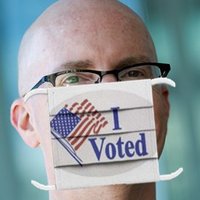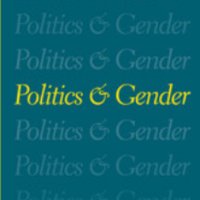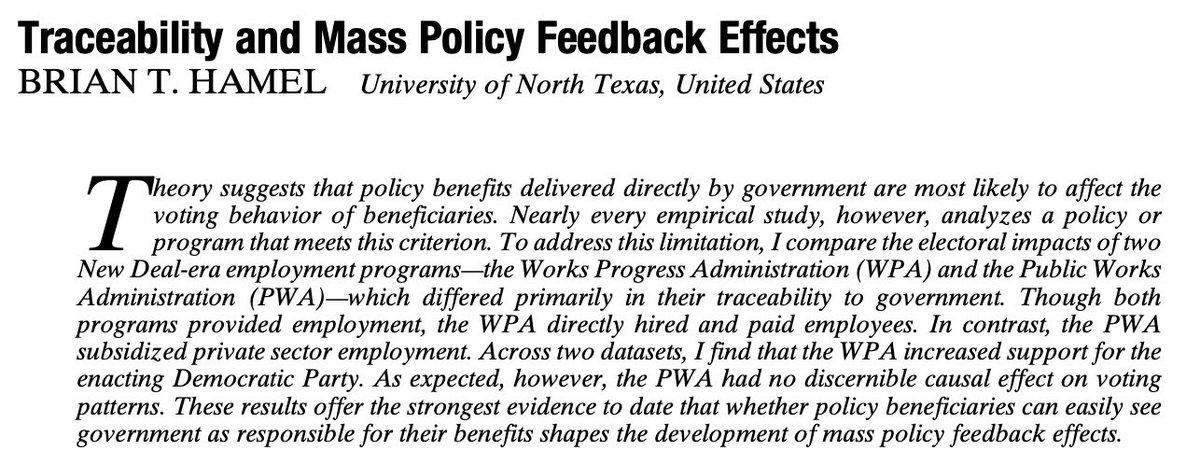
Brian Hamel
@hamelpolisci
Assistant Professor @UNT_PSCI. Ph.D @UCLA. Distributive politics, public policy, and elections in the U.S. 🏳️🌈
ID: 2603979991
http://www.brianhamel.me 04-07-2014 18:56:31
1,1K Tweet
1,1K Followers
1,1K Following

New from Nichole Bauer and me in Politics & Gender: Do the electoral returns to earmarks for women and men depend on whether they are securing funds for projects that fit into feminine or masculine stereotypic strengths? We show the answer is "no." tiny.cc/8ycozz












New working paper with Lanie Richards, a terrific graduate student UNT Political Science! Why is there such a weak relationship between pork barrel spending and U.S. House election outcomes? Some districts are just too damn big. Comments welcome! tinyurl.com/2bbrrb3s


📢New issue of #PAG20 is out!📢 Brian Hamel & Nichole Bauer investigate the link between gendered issue types and successful credit claiming in "Gender, Issue Stereotypes, and the Electoral Returns to Distributive Politics in the United States" buff.ly/40RBbvI





we have now posted the 2024 Cooperative Election Study common content dataset to the Dataverse Project! data from 60,000 American adults interviewed before & after the election. thanks to YouGov America & Caroline Soler for getting this data produced & posted doi.org/10.7910/DVN/X1…


From our new issue: "Traceability and Mass Policy Feedback Effects" by Brian Hamel (Brian Hamel). #APSRNewIssue cambridge.org/core/journals/…






